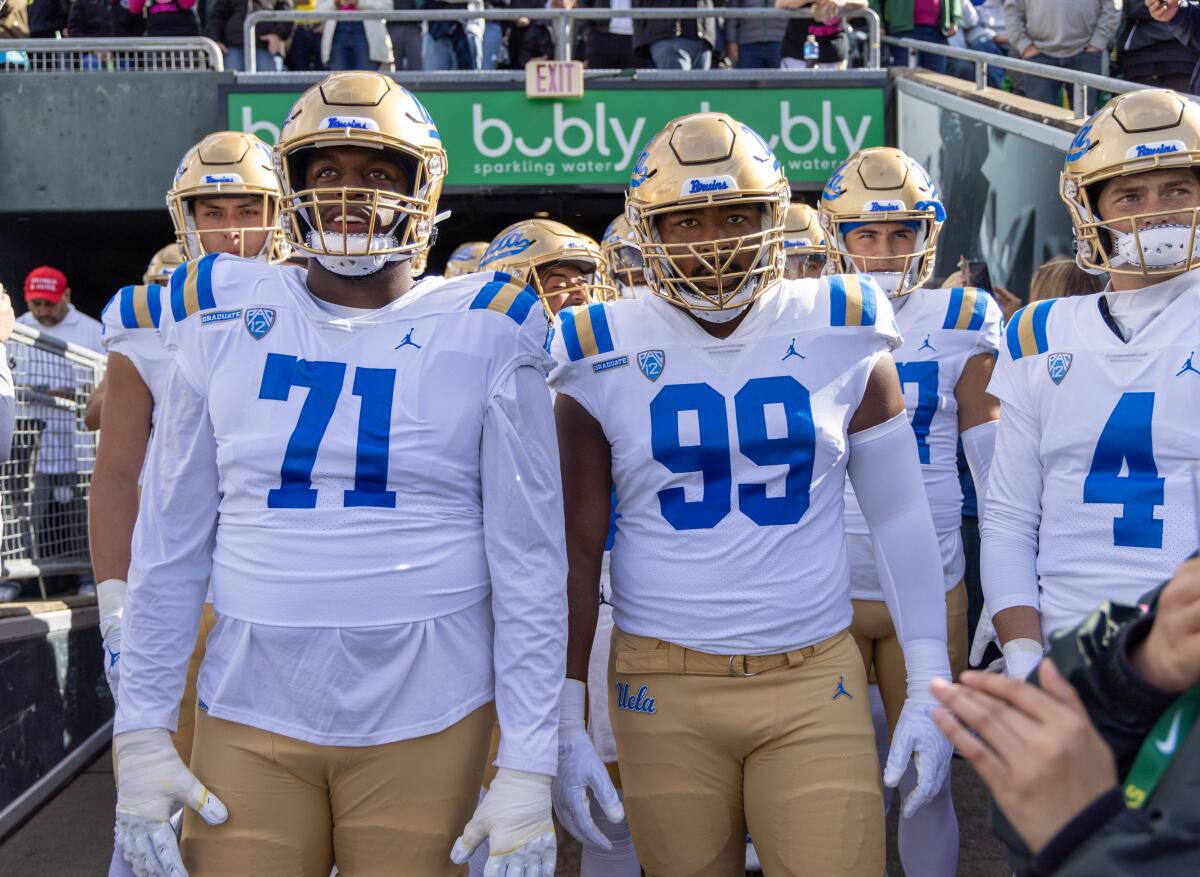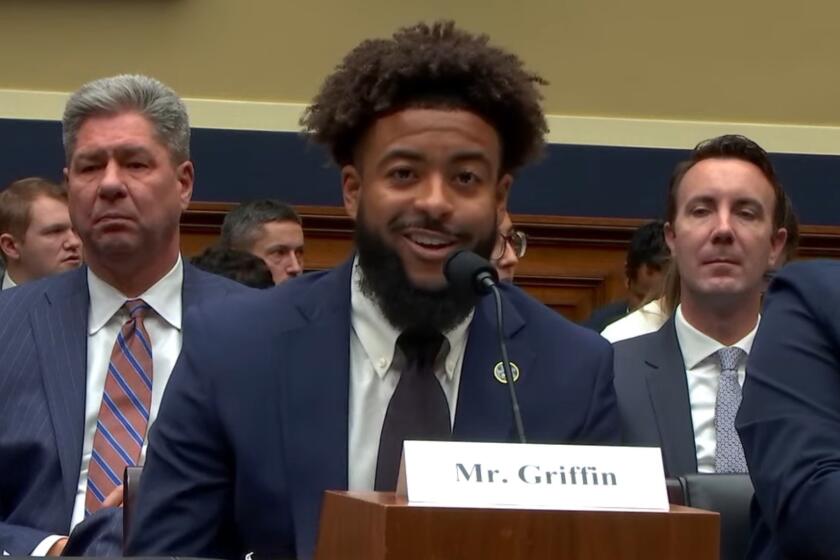UCLA could distribute at least $20 million a year to its more than 600 athletes

The historic House vs. NCAA settlement that established $2.8 billion in back pay for lost name, image and likeness deals and established a framework for revenue sharing between athletic departments and college athletes also prompted more questions than answers.
How much money would be distributed as part of those revenue sharing arrangements? When would the payments start? Which athletes would benefit the most?
On Tuesday evening, UCLA became one of the first schools to provide some specifics. The schoolâs athletic department revealed it expected to participate in revenue sharing with its athletes beginning in August 2025. Furthermore, UCLA said the revenue cap of 22% could amount to distributions totaling $20 million to $22 million per year among its more than 600 athletes.
âItâs a new era in collegiate athletics,â a UCLA athletic department spokesperson said in a statement. âWe embrace this transformation for what it means for our student-athletes: the opportunity to receive direct NIL payments and revenue sharing. Our goals are to support and develop our student-athletes, compete at the highest level and maintain fiscal sustainability.â
Specific breakdowns regarding payments were not made available. Itâs unknown if athletes in the primary revenue sports â football and menâs basketball â will receive a bigger share than athletes who compete in Olympic sports. Also, itâs unclear how Title IX laws will factor into the revenue distribution with respect to any discrepancies between menâs and womenâs sports.
âWith finite resources, an investment in revenue sharing will greatly alter our financial outlook, and we anticipate important discussions with campus leadership around equity, who will receive these new benefits, and how we remain both competitive and fiscally sustainable,â the UCLA spokesperson said. âOur student-athletes and their holistic development remain at the core of everything we do, and we will continue to support and develop them while investing in priority areas of academics, nutrition and mental health resources.â
UCLA quarterback Chase Griffin has become the go-to guy on all matters related to NIL and college athlete compensation â and his fight is far from over.
UCLAâs athletic department was already on tenuous financial footing. The Bruins have run up $167.7 million in debt since the 2019 fiscal year and recently were ordered by the University of California regents to pay $10 million per year in athletic support payments to sister school California. Thatâs on top of the $10.32 million per year that UCLA has committed to spending on enhanced nutrition, mental health and academic tutoring and increased chartered flights as part of its move to the Big Ten Conference.
Those expenses are expected to be offset by increased revenue from that transition; the Bruins are expected to receive at least $60 million a year in media-rights revenue from the Big Ten, a figure that dwarfs what the school would have made by remaining in the Pac-12.
In another major development, UCLA is soon expected to announce a new chancellor after the retirement of Gene Block. Whoever takes over will inherit a sports landscape that looks nothing like the one that preceded it.
More to Read
Go beyond the scoreboard
Get the latest on L.A.'s teams in the daily Sports Report newsletter.
You may occasionally receive promotional content from the Los Angeles Times.








